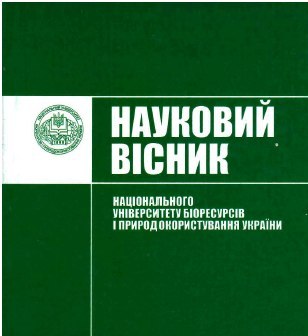General aspects of methodology of teaching translation
DOI:
https://doi.org/10.31548/philolog0(257).2016.0214%20-%20220Abstract
The article deals with the research of methodology of teaching translation, namely the analysis of practical teaching methods of translation and the system of exercises aimed at the formation of the translation competence of future translators. The authors have paid attention to the importance of formation of translation competence. The analysis of the scientific and methodological literature helped the researchers identify the effective teaching methods of translation and select a system of exercises which can be used during the training process.
Considerable attention is paid to the fact that becoming a professional translator is not an easy task. The use of the methods and a system of exercises mentioned in the paper would be helpful in the process of intense studying. Thus, suggested ways can be efficiently used. It is recommended for Ukrainian educational institutions to reconsider their educational curricular in order to apply international educational systems as successfully as possible.
The general aspects of translation teaching methods are determined through the generalization of experience training translators offered by scientists. We come to the conclusion that the integrated use of various forms and methods of students’ training activity will motivate their hard work and facilitate the development of the future teachers’ competence.
The goal determines the following tasks: to consider methods of formation of translation competence as well as methods of teaching translation.
References
Avramenko, M. L. (2006) Vyibor prakticheskih metodov i uprazhneniy pri obuchenii perevodu [The choice of methods and practical exercises in teaching translation].Avalable at : http//www.natek.freenet.kz/Avramenko.rtf
Alekseeva, I. S. (2001) Professionalnoe obuchenie perevodchika: Uchebnoe posobie po ustnomu i pismennomu perevodu dlya perevodchikov i prepodavateley [Professional translator training: Training Manual for interpretation and translation for translators and teachers]. – SPb.: Izdatelstvo «Soyuz», 288
Baranova, S.V. (2002) Aktualni pytannia metodyky vykladannia perekladu [Current issues of teaching methodology of translation] // Visnyk Sumskoho derzhavnoho un-tu. Seriia: Filolohichni nauky. №4(37),12-15.
Bondarenko, O. M., Korotiaieva I. B. (2014) Praktychni metody ta systema vprav dlia formuvannia perekladatskoi kompetentsii u studentiv-perekladachiv [Practical methods and a system of exercises to build students-translators’ competence] Naukovi zapysky NDU im. M. Hoholia. Seriia: Filolohichni nauky, 173-174.
Pedagogika (2002): uchebnik dlya studentov pedagogicheskiy uchebnyih zavedeniy [Pedagogy: textbook for students of pedagogical institutions] / pod red. P. I. Pidkasistogo. M.: Pedagogicheskoe obschestvo Rossii, 608
Chernovatyi, L. M.(2013) Metodyka vykladannia perekladu yak spetsialnosti : pidruchnyk dlia stud. vyshchykh zaklad. osvity za spetsialnistiu “Pereklad”[ Methods of teaching translation as a profession: a textbook for students of higher institutions. in the specialty "Translation] – Vinnytsia: Nova Knyha, 376
Downloads
Published
Issue
Section
License
Relationship between right holders and users shall be governed by the terms of the license Creative Commons Attribution – non-commercial – Distribution On Same Conditions 4.0 international (CC BY-NC-SA 4.0):https://creativecommons.org/licenses/by-nc-sa/4.0/deed.uk
Authors who publish with this journal agree to the following terms:
- Authors retain copyright and grant the journal right of first publication with the work simultaneously licensed under a Creative Commons Attribution License that allows others to share the work with an acknowledgement of the work's authorship and initial publication in this journal.
- Authors are able to enter into separate, additional contractual arrangements for the non-exclusive distribution of the journal's published version of the work (e.g., post it to an institutional repository or publish it in a book), with an acknowledgement of its initial publication in this journal.
- Authors are permitted and encouraged to post their work online (e.g., in institutional repositories or on their website) prior to and during the submission process, as it can lead to productive exchanges, as well as earlier and greater citation of published work (See The Effect of Open Access).

